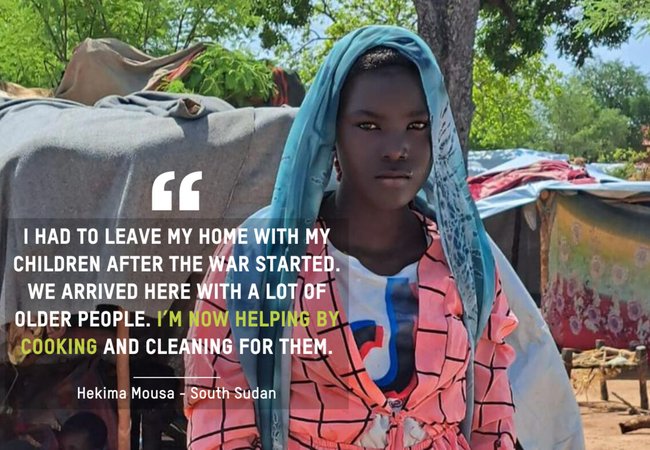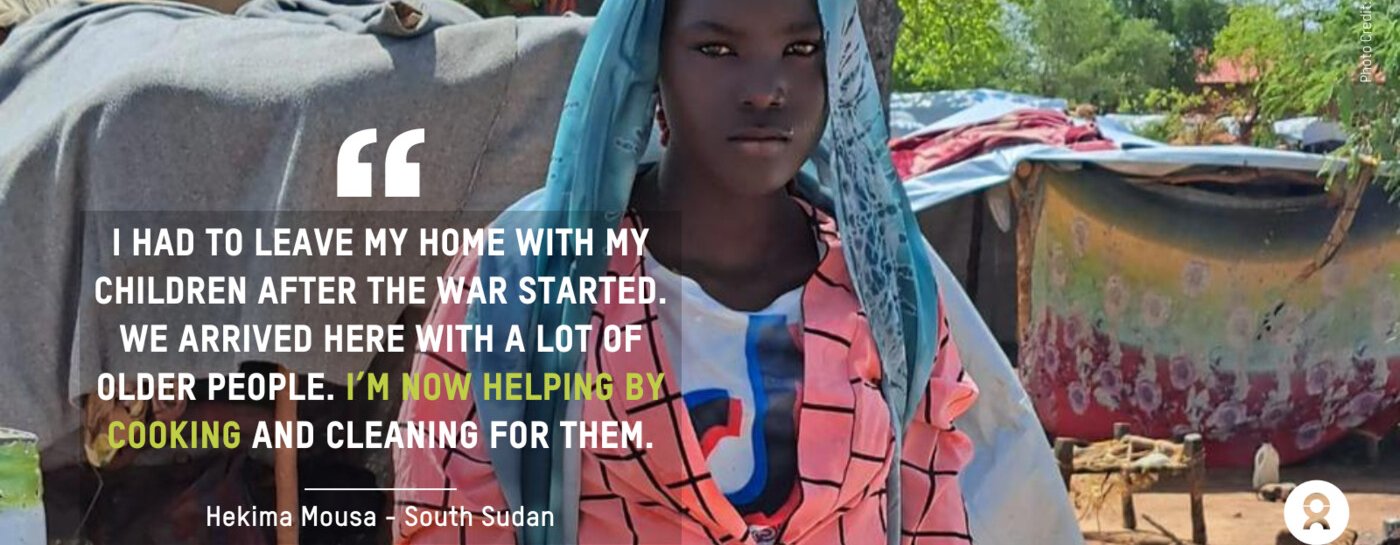The conflict in Sudan broke out in mid-April and, despite a series of temporary cease fires, a sustainable peace remains elusive.
The UN says that half of the Sudanese population – over 24.7 million people – need humanitarian aid and protection, and that almost 2.5 million people have been displaced inside and outside the country. The Secretary-General António Guterres says “the scale and speed of Sudan’s descent into death and destruction is unprecedented” with the situation in Khartoum and Darfur “catastrophic”.
Last week the UN held a high-level pledging conference in Geneva. While nearly $1.5 billion was pledged for the humanitarian response in Sudan and wider region – including £33.58 million from the UK – the UN has appealed for double that level of financial support.
The Scottish Government’s money has been split between Oxfam in South Sudan and the British Red Cross, who will deliver assistance within Sudan through the Sudanese Red Crescent Society. Each agency’s response will receive £125,000.
Oxfam is already responding to the Sudan crisis – delivering clean drinking water every day to 2,500 people and supporting 1,000 households with cash support and a further 500 households with other emergency help.
The Scottish Government funding, which comes from the Humanitarian Emergency Fund, will help Oxfam reach even more people. The money will fund cash transfers to nearly 750 households – reaching more than an estimated 4,500 individuals – at the border area of Upper Nile in South Sudan, allowing them to access lifesaving food and other essential supplies.
Dr Manenji Mangundu, Oxfam in South Sudan Country Director, said: “Even before the conflict in neighbouring Sudan began, South Sudan was already facing multiple crises, with 9.4 million people – over three quarters of the population – in need of humanitarian assistance.
“The conflict in Sudan has exacerbated this dire situation, with over 100,000 people already having fled into South Sudan in desperate need of urgent help, with more expected to arrive.
“The Scottish Government’s welcome funding will provide some of the most vulnerable people – including pregnant women and the elderly – with the money they need to access life-saving essentials, like food and hygiene products. By giving people money, they can choose how best to meet their own needs.”
The UN says that 550,000 people have crossed from Sudan into neighbouring countries, and estimates that between May and October 2023, some 180,000 South Sudanese citizens will return to South Sudan as a result of the conflict in Sudan, with a further 60,000 refugees arriving.
South Sudan already faced multiple crises due to its own internal political conflict and the effects of climate change. The UN humanitarian appeal for South Sudan is only 34% funded.
Dr Manenji Mangundu has issued an urgent appeal for more funds, adding: “We hope the Scottish Government’s generosity will inspire other Governments to act similarly: people seeking safety simply can’t afford to wait. Dangerous delays in funding could prove deadly.”
Oxfam is calling on all combatants in the Sudan conflict to protect civilians caught in the crossfire and particularly calls on all combatants to cease the use of explosive weapons in populated areas, as these drive displacement, cause greater death and injury and destroy civilian infrastructure. Explosive weapons also have a distinct gendered impact that can adversely and disproportionately affect women and girls.
Please, if you can, donate to Oxfam’s Emergency Response work globally.


